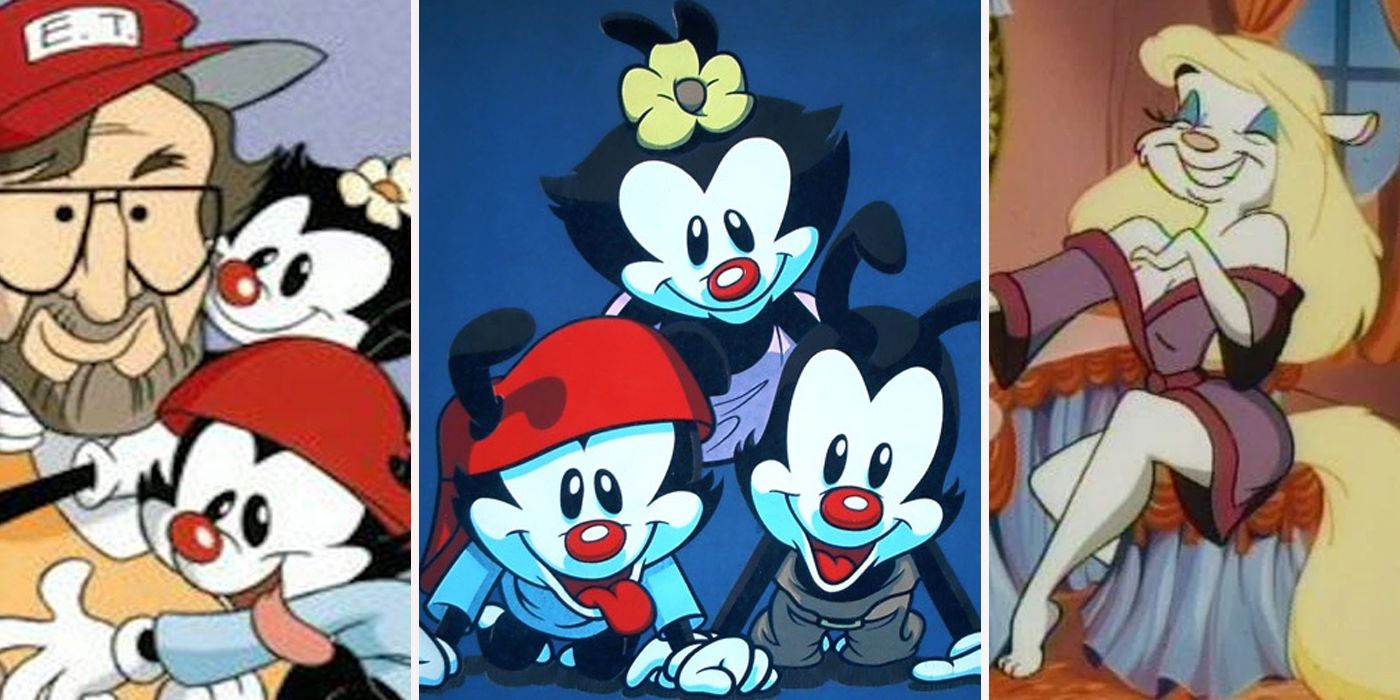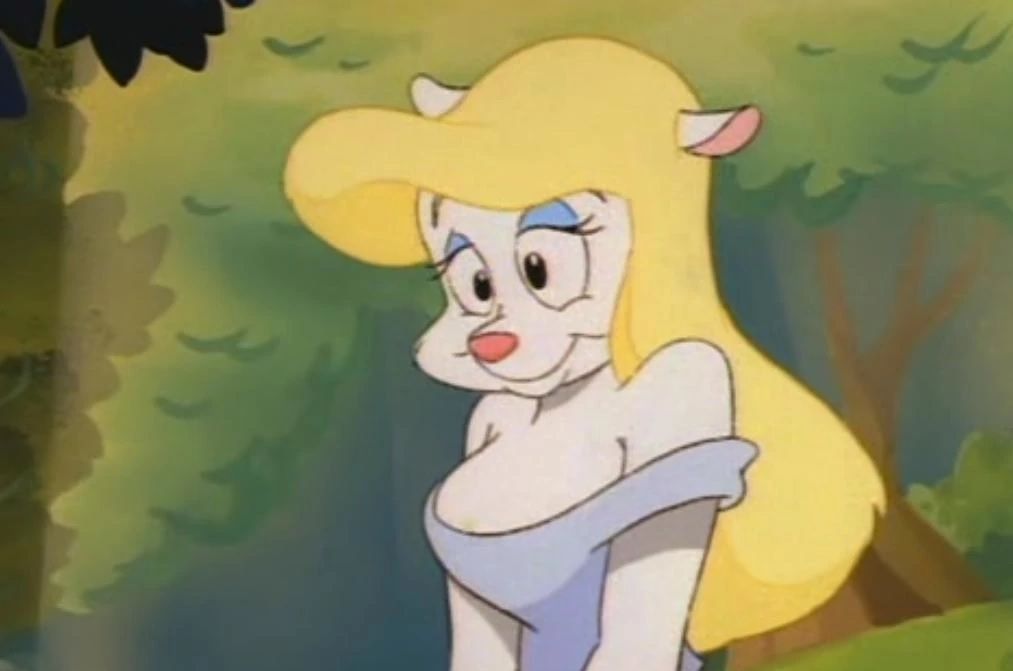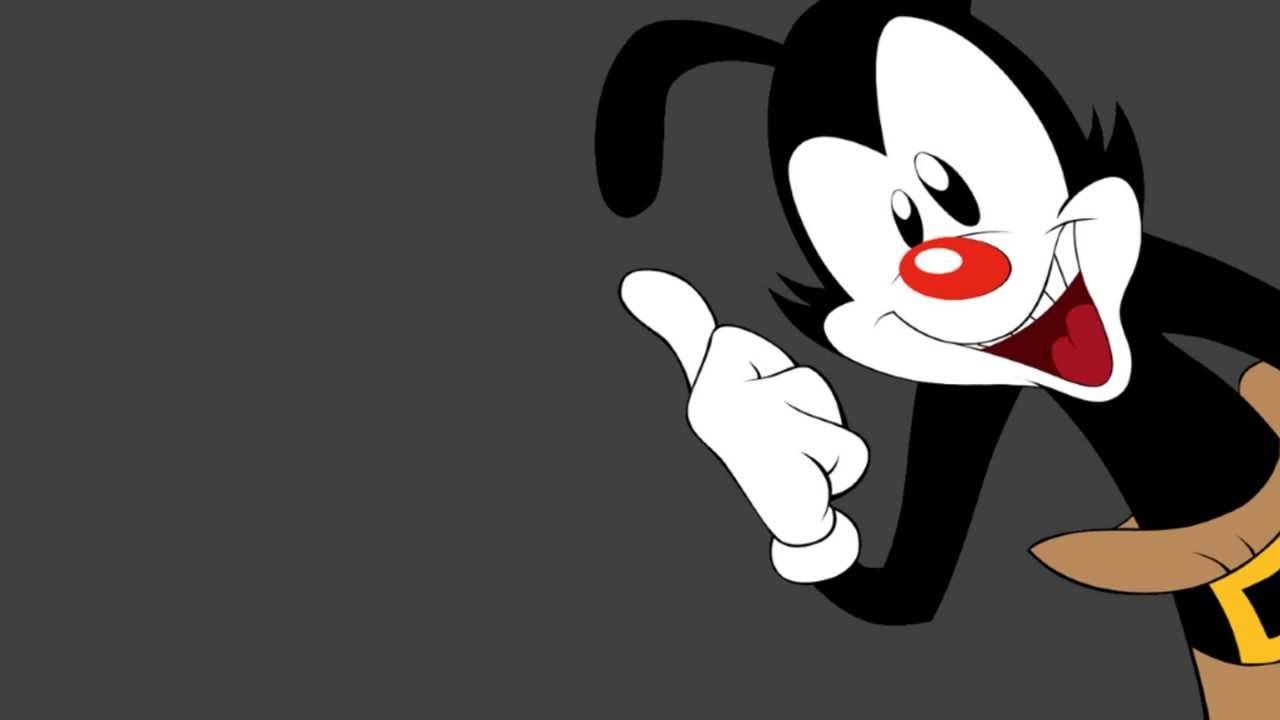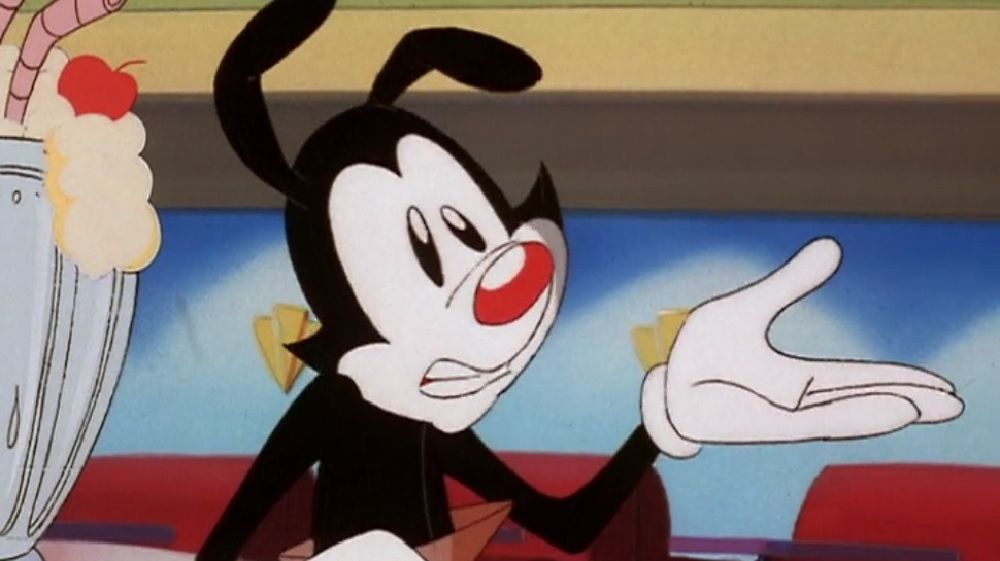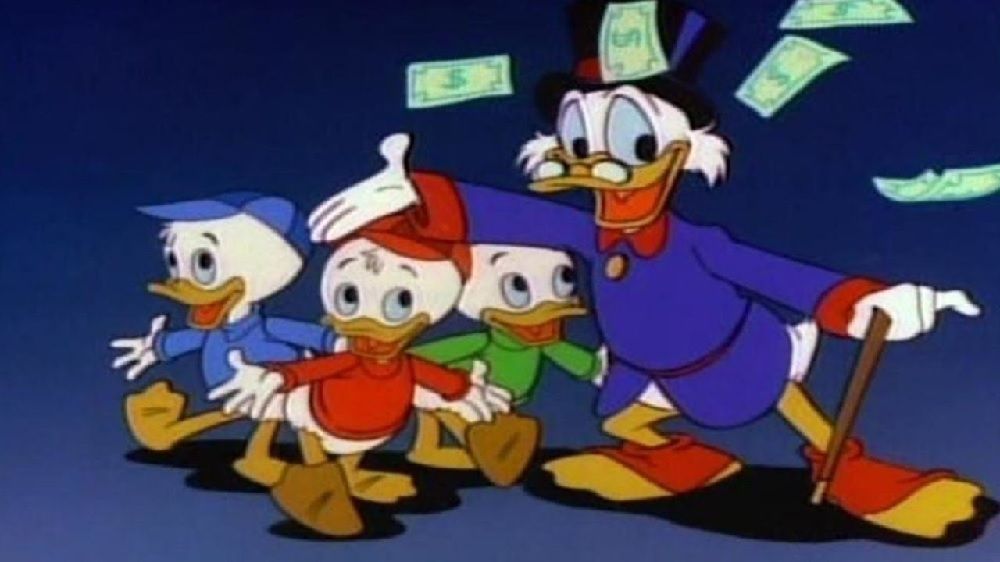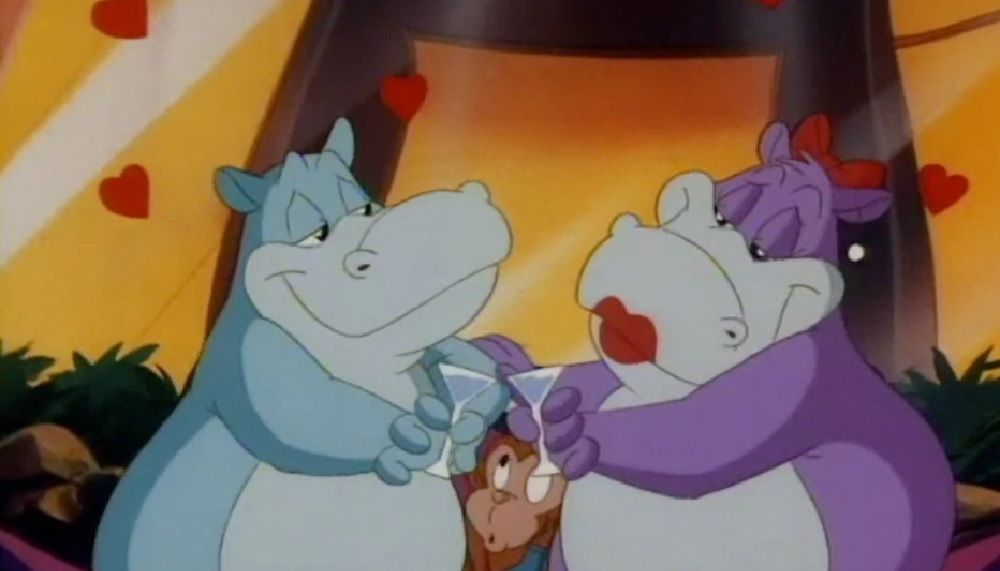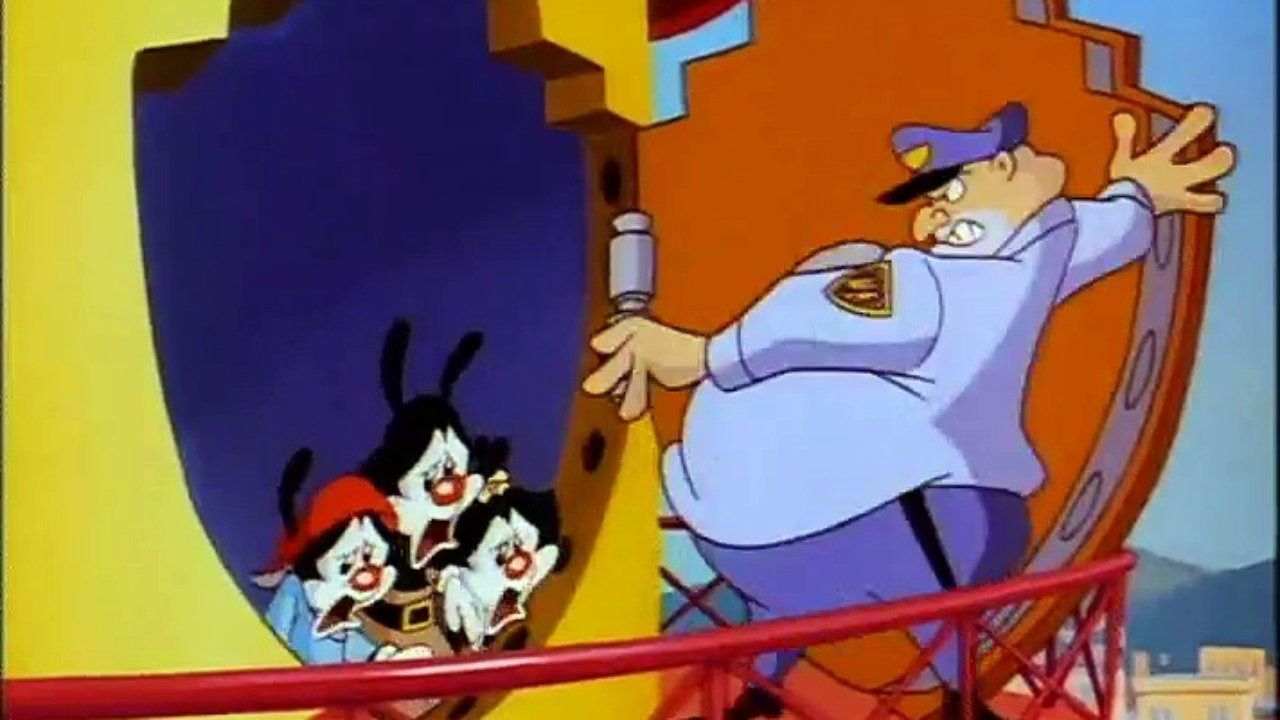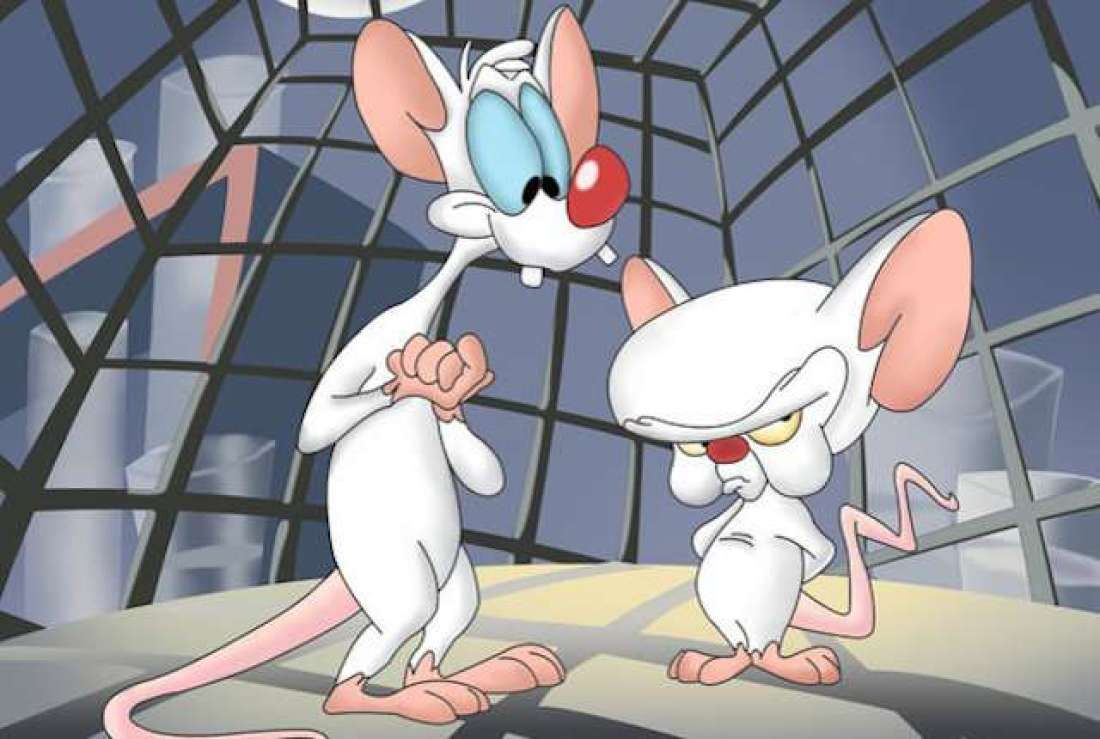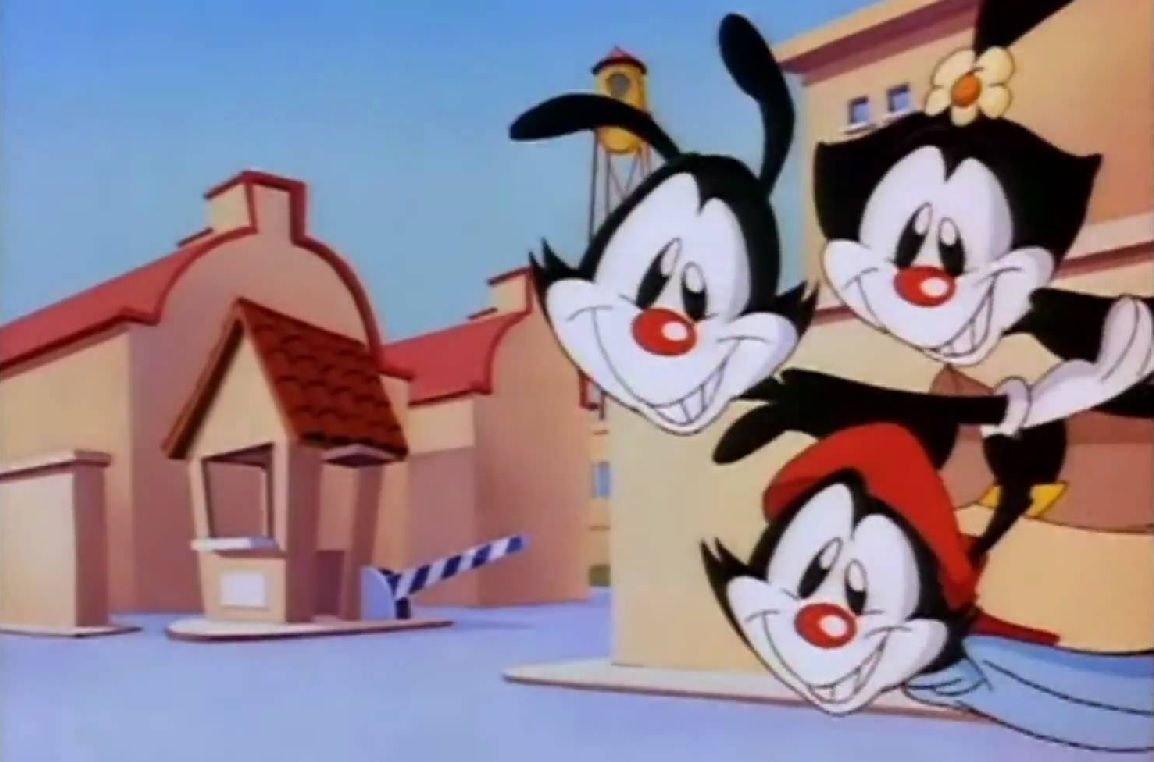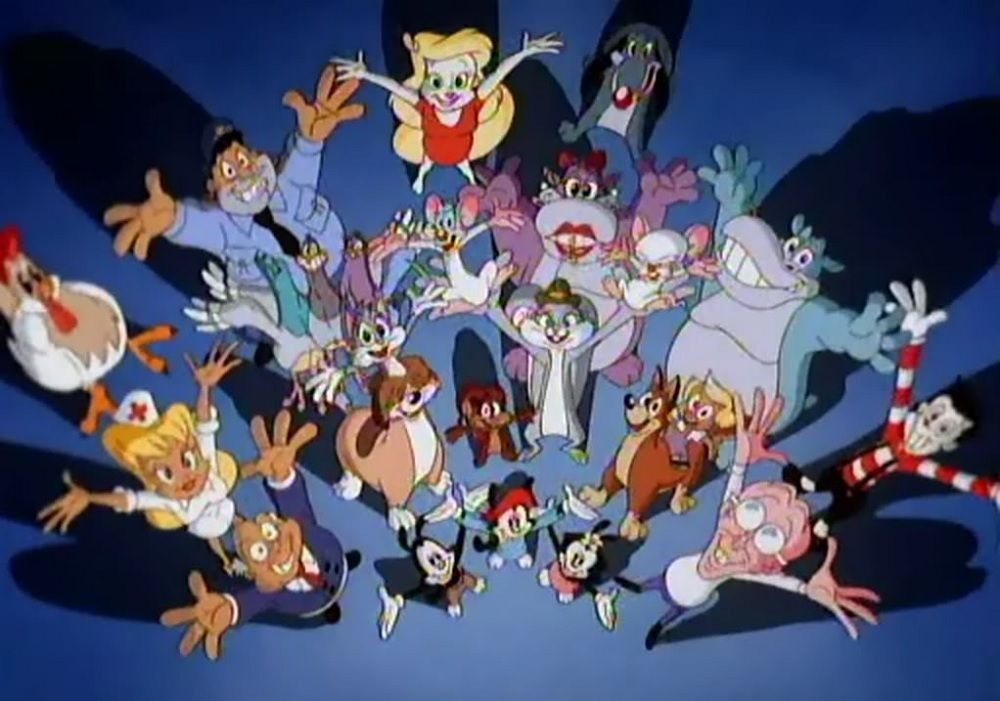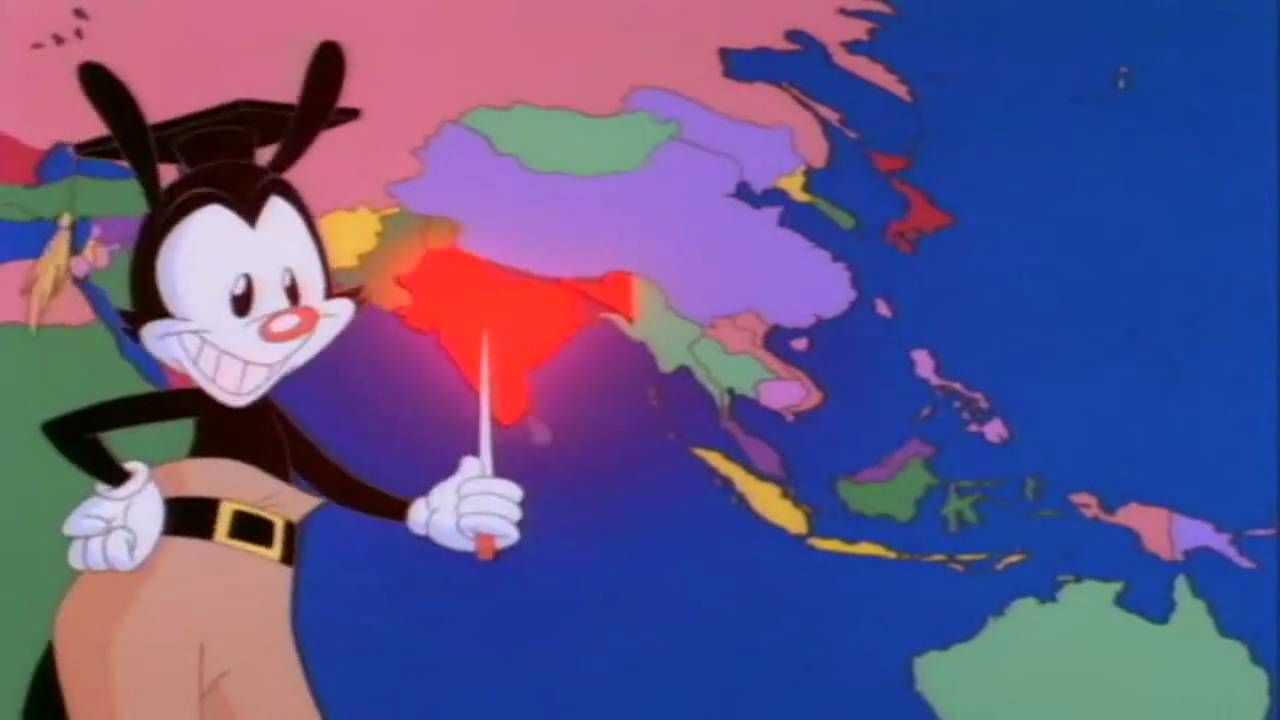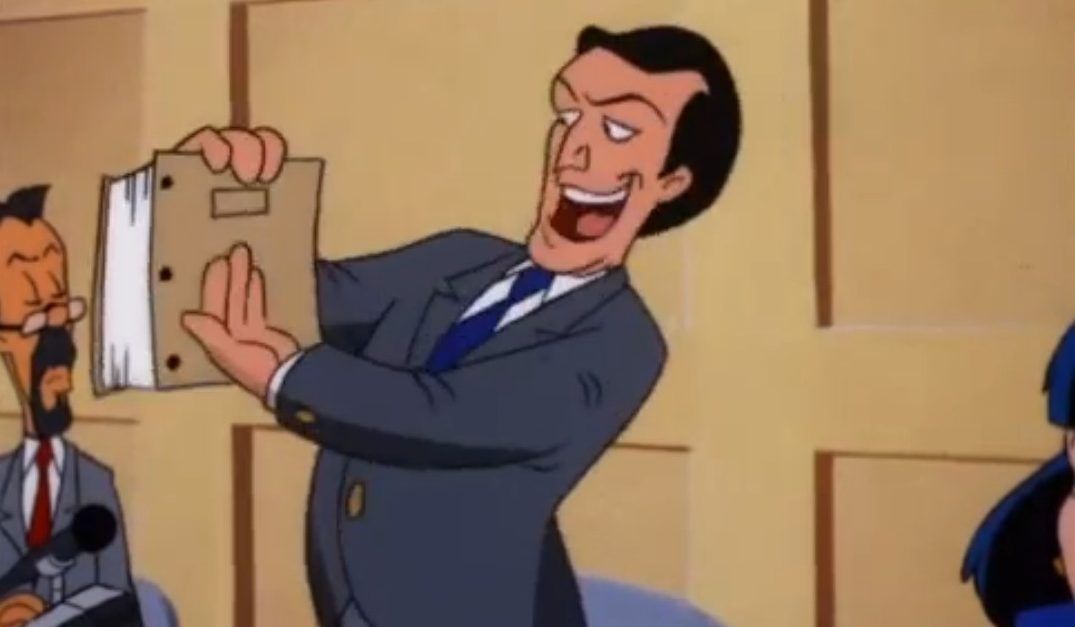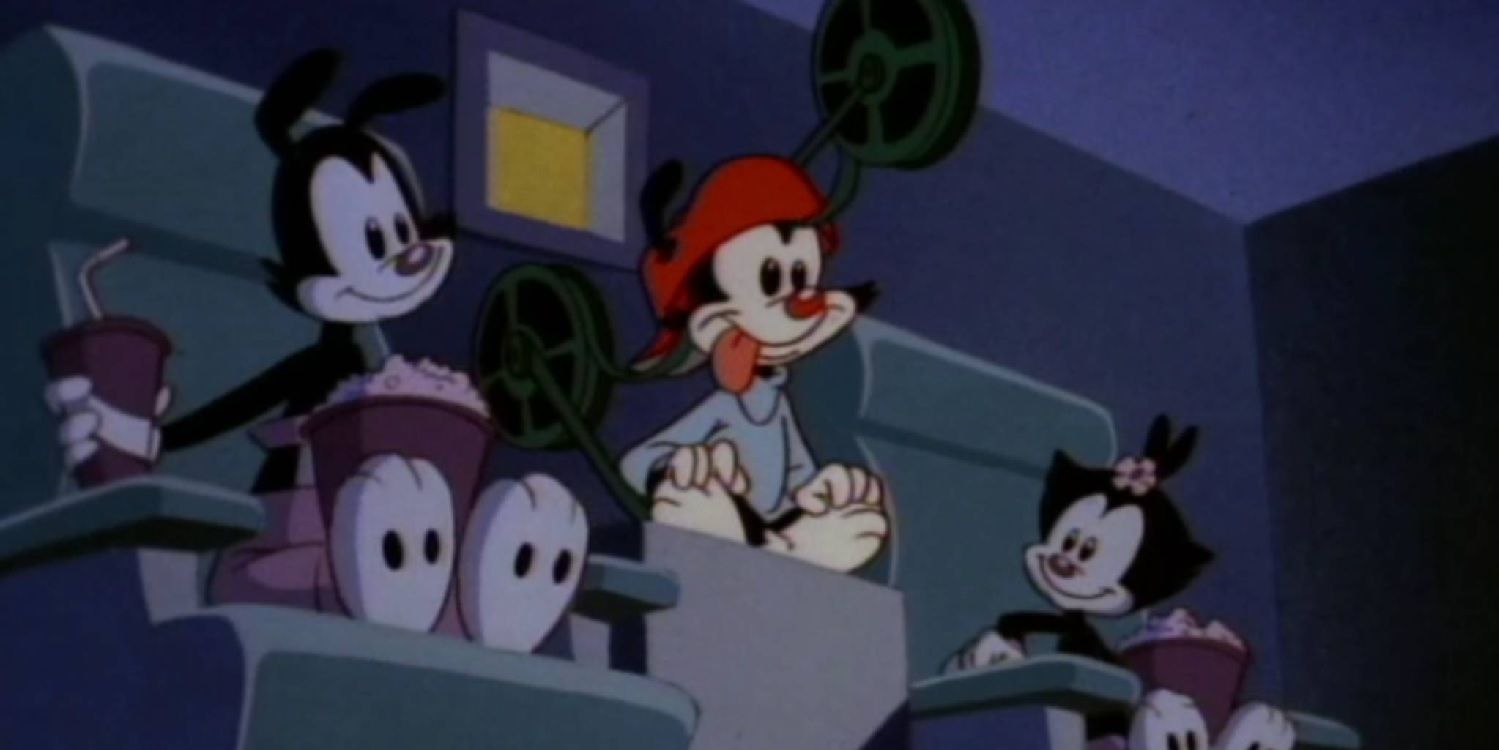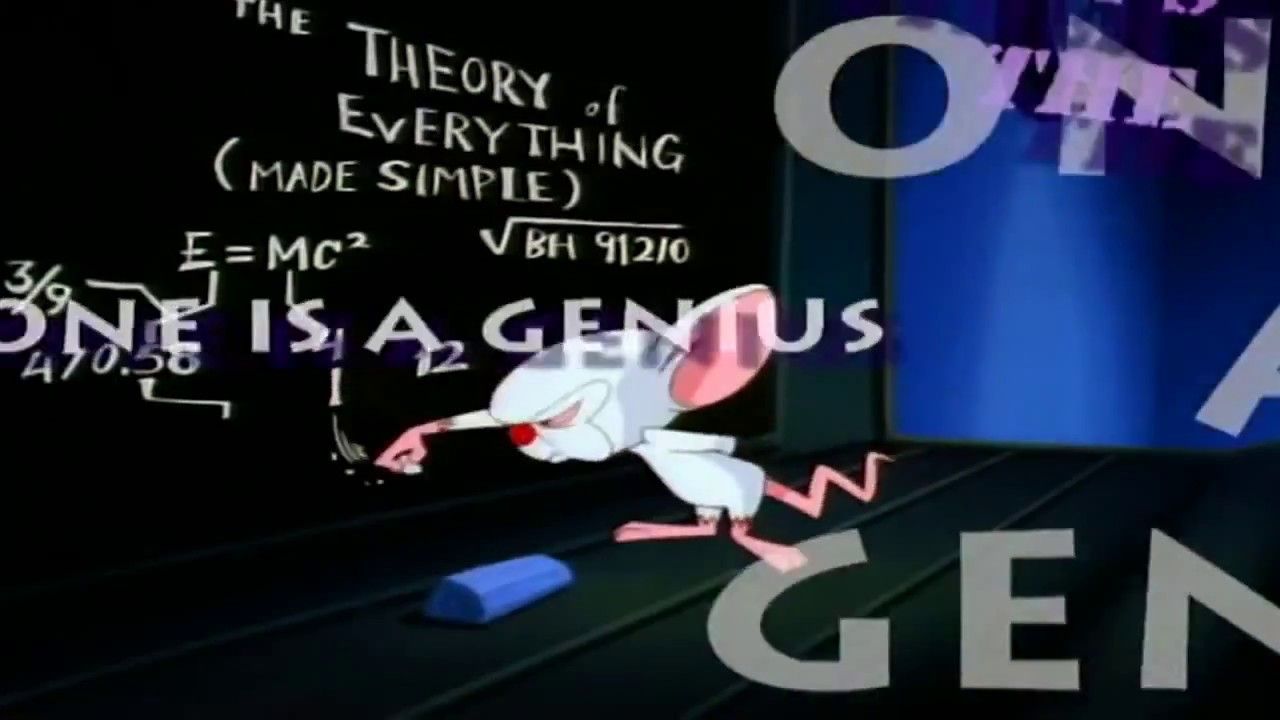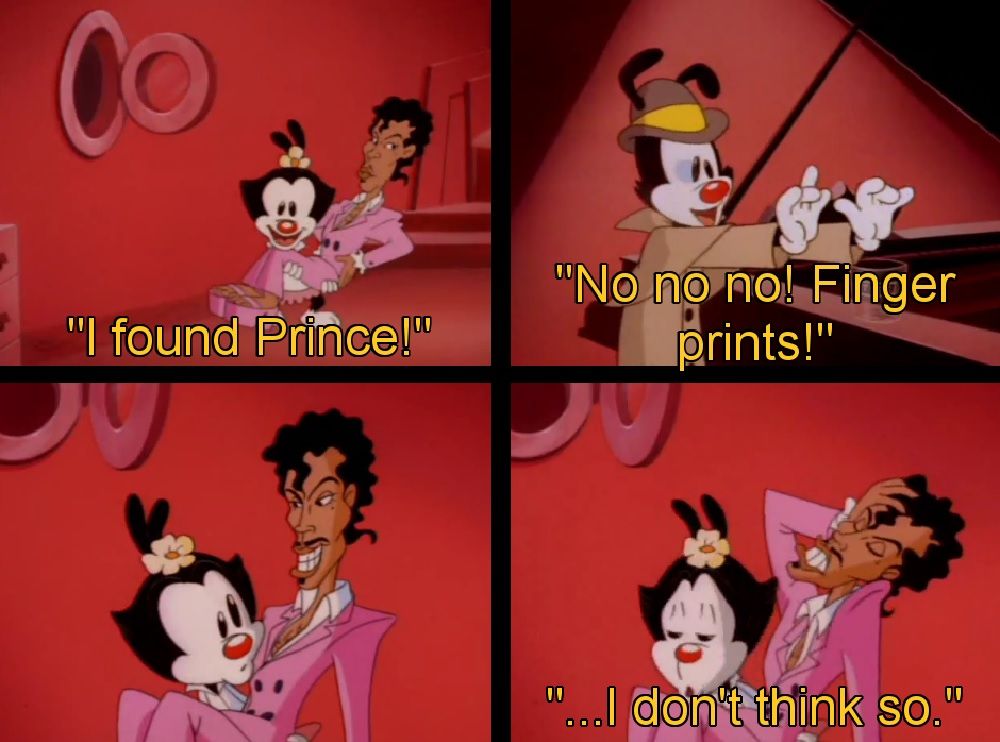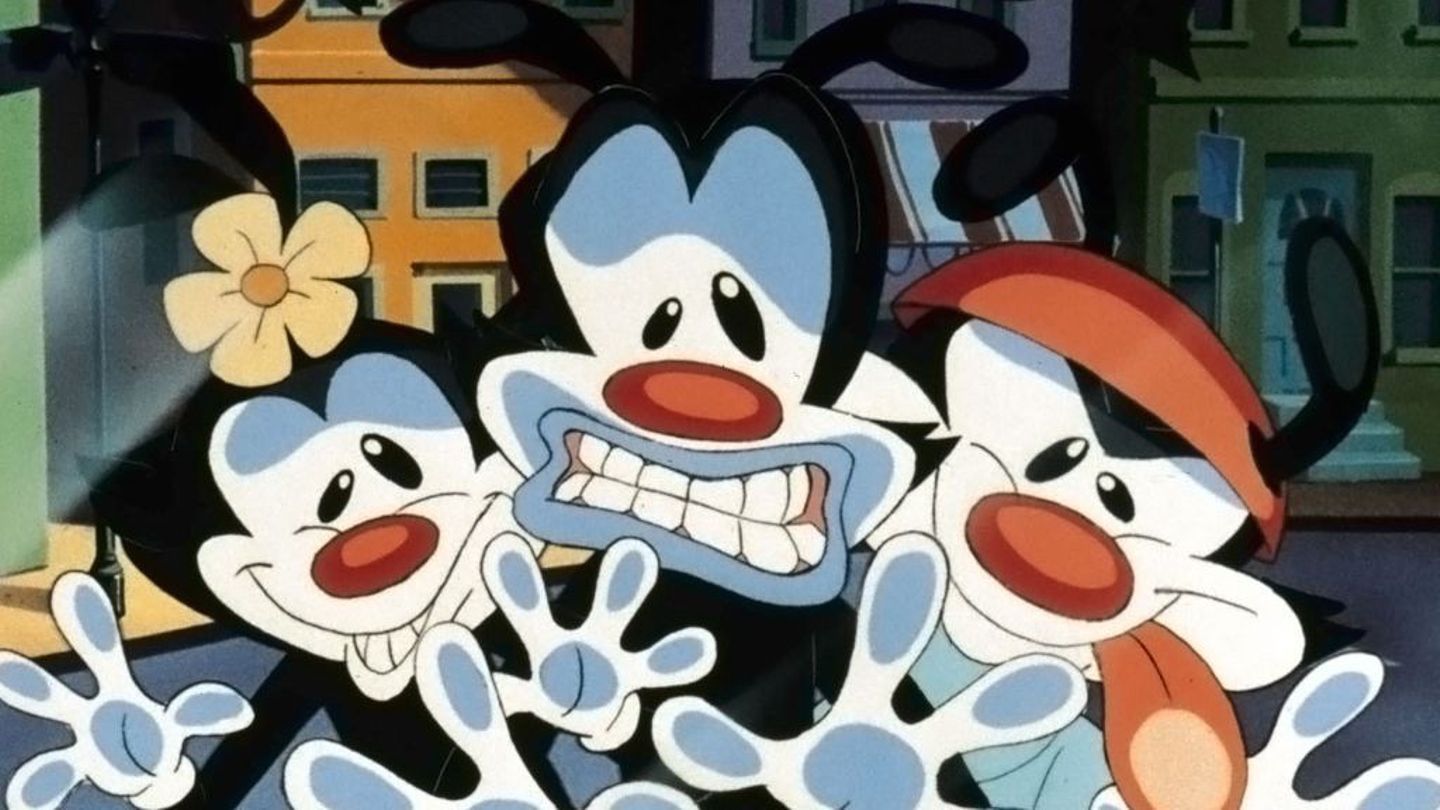Animaniacs burst onto the screen in 1993, and the adventures of the Warner Brothers (and the Warner Sister) became an immediate sensation. The animated variety show quickly cemented its place as an essential part of a '90s childhood with its quick banter, pop culture knowledge, and off-the-wall comedy.
It was always clear Animaniacs was different from the usual kids cartoon. Produced by Steven Spielberg, the show had a more mature and timeless quality that brought in viewers of all ages. The show never talked down to its audience, instead catering to a wide age range, often including many jokes that would go over kids' heads and land with adults. Certain episodes even became infamous for particular suggestive jokes that bafflingly got past the censors for children's programming.
However, creating a show like Animaniacs was not as easy as it looked. The writers were constantly dodging the censors, contending with copyright laws, sidestepping studio meddling, and competing with everyone's archnemesis Disney.
Spielberg himself had a hand in crafting the show, rejecting ideas and drawing lines the writers could not cross. The show went on for four years, but was canceled for dubious reasons and revived only once in movie form. However, the series will be returning with new episodes on Hulu soon.
Here are the 15 Dark Secrets Behind The Making Of Animaniacs.
Minerva Mink was removed for being too suggestive
The character of Minerva Mink was only given a couple of segments before being relegated to cameos, despite the early emphasis on her character as a feature. Her role on the show was primarily to be attractive, and her original name was Marilyn Mink.
The writers may have intended to have more Minerva on the show, but the censors did not agree with the plan. The network censors considered her character too suggestive for the young intended audience of the show.
As a result, Minerva's part on the show was scaled back. Minerva's few appearances still caused issues, though. Warner Bros. Animation president Jean MacCurdy requested one of her segments be recalled, redrawn, and reshot because Minerva Mink had too much cleavage. The segment was redone with decreased cleavage.
The studio head mistook Yakko for Mickey Mouse
In an early promotion for the show, a Yakko balloon was installed sitting on the famous Warner Bros. Studio water tower.
This promotional tactic evidently did not reach the studio head, Bob Daley. When Daley came to work, he thought the balloon was Mickey Mouse and ordered the offending balloon removed. The balloon was up for less than 12 hours before it was taken down and popped.
After he realized his mistake, Daley worked to ensure no one would mistake their property for Disney's to avoid confusion and legal action from Disney.
He decided Yakko and Wakko were too rounded and watched while series creator Tom Ruegger added whiskers to the characters. Ruegger then had to rush the changes to the animation studio, as the cartoon was already being drawn.
The writers have no idea how they got so many dirty jokes past the censors
Animaniacs is probably most famous for the large number of dirty and suggestive jokes it aired. Fans have created compendiums of the jokes they never realized were dirty when they were children. For decades, fans have wondered how the show was able to get away with so much under the network censors' watchful eyes.
The writers seem to be aware of their good fortune. Every time a character used a suggestive joke, Yakko would add "Goodnight, everybody!" as if expecting to be taken off the air in the middle of the show.
When asked how they got so many adult jokes past the censors, writers Tom Ruegger, Sheri Stoner, Paul Rugg, and John P. McCann agreed, "We have no idea." Tom Reugger commented that a "Fox censor and perhaps someone at Amblin [Entertainment] who might object to a joke here and there," but apparently they did not object to much.
They ran into problems because Disney had oversaturated the cartoon duck market
Even in the early development stages, animation powerhouse Disney was causing Animaniacs a few problems. The earliest concept for Animaniacs featured three brother ducks.
There was just one problem-- Disney had already oversaturated the cartoon duck market. At the same time Animaniacs was going into production, Disney had Donald Duck, Duck Tales, and Darkwing Duck. Warner Bros. already had Daffy Duck and decided one cartoon duck was probably enough.
Series creator tom Ruegger suggested the Warner instead be drawn in the animation style of vintage 1930s anthropomorphized animals. The Warners were changed to be dog-like characters, though no one knows for sure what kind of animal the Warners are supposed to be. The creative team's background information on the Warners lists their species as “Cartoonus Characterus.”
Spielberg prevented the writers from making jokes about anyone's weight
Even with the Animaniacs outlandish and adult comedy, there were a few lines the writers were not supposed to cross. Executive producer Steven Spielberg had some requirements for the writers when it came to certain kinds of jokes. Tom Ruegger stated, "At one point, Steven put a kibosh on fat jokes, which proved smart."
Though it did not seem like the Animaniacs writers had many areas they could not stray into, Spielberg ensured the characters would not be seen mocking anyone's weight. These jokes were much more common on '90s television, but are not used as much anymore.
This sensitivity in the comedy may be one reason the show remains so popular with modern audiences, and it clearly did not hurt the comedic potential of the show.
The series creator didn't like the network that aired the final season
Animaniacs is not the first show to fall prey to network decisions, but it was disappointing when network changes led to the ultimate demise of the series.
The show started out airing on Fox Kids in 1993, and it continued on the Fox network until 1995. Approximate two-thirds of the series episodes were produced during the Fox Kids era. In 1995, Warner Bros. decided to switch Animaniacs to their new network, The WB.
New episodes of the series premiered in the Kids WB slot on The WB. However, the new network was dissatisfied with the show's performance and slowly dropped off their orders for more episodes, eventually ending the series.
Series creator Tom Ruegger commented on the change using Animaniacs' popular Good Idea, Bad Idea sketch: "Good idea: airing on the Fox Kids Network. Bad Idea: airing on Kids WB."
Brain was based on an infamous recording of Orson Welles lashing out
When Pinky and the Brain were introduced on Animaniacs, it was clear to viewers in the know that evil genius Brain sounded eerily like prolific classic film star Orson Welles.
The similarity was no coincidence, as the voice actor has admitted that Brain's voice is based on the actor. More precisely, Brain is based on one infamous recording of Orson Welles arguing with a recording engineer while voicing over a commercial.
One Pinky and the Brain sketch entitled "Yes, Always" was taken verbatim from the recording, though with the language cleaned up. Voice actor Maurice LaMarche stated that the Brain was "sixty-five percent Orson Welles, and thirty-five percent Vincent Price."
The scripts also frequently referenced Orson Welles work. Producer Peter Hastings called Pinky and the Brain's spin-off series "a two hundred fifty thousand dollar inside joke on Orson Welles."
The studio wanted to turn it into a domestic sitcom, but the writers fought back
Animaniacs was always off-the-wall and unpredictable, focusing on the crazy and usually nonsensical adventures of the Warners.
Though fans loved it, the studio was not sure about the show's recipe for success. They wanted to turn Animaniacs into more of a domestic sitcom, moving away from the absurd plotlines that had made the show's name. The studio even cast Dick Clark as the crazy neighbor in an attempt to give the show a Kramer-like character.
The writers complied, mostly. They followed the studio's requirements to make it sitcom-like, but used it as a chance to make fun of sitcom cliches. The writers making fun of the show format the studio had imposed on them did not make the Warner Bros. executives very happy, but in retrospect they probably should have expected it.
Spielberg turned down several of the supporting characters
Spielberg played a heavy hand in making Animaniacs what it was. When the characters were created for the variety show, they were shown to Steven Spielberg for approval. He chose the ones he thought worked the best and left other character behind.
One idea he turned down was Bossy Beaver, a workaholic beaver trying to build "the best damn dam ever" as his sidekick Doyle messed up all his plans.
Spielberg thought the idea was too similar to Pinky and the Brain. Another idea left behind was Nipsey and Russell, two con-men raccoons that worked a neighborhood at night, but Spielberg thought the show already had enough comedy duos and rejected the idea.
The writers had one other idea that never worked out, a melodramatic soap opera about single-celled organisms called "As the Petri Dish Turns."
Warner Bros. almost did not hire the writer of Animaniacs' most famous songs
One of the brains behind Animaniacs was Randy Rogel, a talented writer who had already won an Emmy for his work on Batman: The Animated Series.
After his talented dramatic work, he wanted to work on Animaniacs to use his comedy and musical skills. Warner Bros. had their doubts, seeing him as just a drama writer. They were unsure if Rogel could transition to musical comedy.
To prove them wrong, Rogel auditioned for them with probably the most famous song from the series, "Yakko's World," in which Yakko names all the countries of the world. He was hired and continued to write many of the show's most well-known songs.
Since the end of Animaniacs, Rogel even updated "Yakko's World" to reflect the geopolitical changes in the world. Yakko's voice actor Rob Paulsen sung it on his podcast.
They created a character just to make fun of the FCC
Animaniacs never shied away from making any subject the focus of jokes, even powerful people. In the episode "Bully for Skippy," the writers decided to take on the Federal Communications Commission (FCC).
Tom Ruegger commented, "This one was, maybe, the most political thing I ever wrote. It was in reaction to the FCC mandating that there be a very specific and heavy amount of hours per day in the TV schedule that’s educational for children, which ultimately impacted the kind of cartoons that channels could put on the air."
He continued, "The head of the FCC at that point was a fellow named Reed Hundt so we came up with this character named Reef Blunt. We animated him and had our characters at some Washington, DC hearing and Reef Blunt basically said, 'We’re going to have educational cartoons and I’m going to be watching you!'"
Studio handling may have killed planned movies
Animaniacs spun a total of one movie off of the series, Wakko's Wish. The plot centered on the Animaniacs cast living in a land conquered by a greedy king, and a star falls that will grant a wish to the first person who touches it.
The Warners and the king race to find the star first. The movie was tested for theatrical release, and it rated highly with both children and adults. Spielberg himself wanted a theatrical release.
However, Warner Bros. decided to release the movie direct-to-video instead, not wanting to spend the money on advertising.
Tom Ruegger had planned to have movie feature film adventures for the Warners, including a World War II epic, a Revolutionary War adventure, an Oliver Twist parody, and a Christmas movie, but the mishandling of the first movie meant these concepts would never come to fruition.
The writers left the composer to tangle with copyright issues
Music was an essential part of Animaniacs. The series produced some spectacular musical numbers that fans remember over two decades later.
The musical element was led by a team of composers headed by Richard Stone. The writers would come up with the lyrics they wanted to be set to music, and then the busy and probably very tired composers would find a way to set them to music.
The composers' jobs were made more difficult by the writers' tendency to write the lyrics to the tune of a familiar song, which would obviously cause copyright issues. The music the composers created would still have to match the lyrics, but sound nothing like the tune they were based on.
For example, the theme for Pinky and the Brain was written to the tune of "Singing In The Rain," but in the end sounded like a completely different song.
The writers had no idea they were creating the infamous "fingerprints" joke
Animaniacs was never short of adult jokes, but some of them still leave fans baffled as to how they ever made it to air. One such joke was the infamous "fingerprints" scene.
Yakko, investigating a crime, told Dot to dust for prints. Dot came back with the famous musician Prince, and Yakko clarified "fingerprints." The rest is strangely uncensored history. It's not the kind of joke that would normally fly on a children's show.
However, it seems the writers did not even know they were creating the infamous joke. Series creator Tom Ruegger explained, "It looked innocent on paper. It was funny in the board so we let it go to animation, then when it came back, the footage made us laugh so hard that we kept it in, and then when no one objected, it went on the air. Yikes!"
The show was canceled for being more popular with teenagers and adults
After an amazing five-season run, Animaniacs was canceled while still retaining a loyal following. The reason for cancellation was that too many adults liked the show.
The show was still being aired in a children's programming block, but children were not a high proportion of the viewers. The sponsors for the programming block did not like the show's ratings, as they did not want to pay for an audience that would not buy the children's products they marketed.
Warner Bros. reduced their orders of episodes for Animaniacs and finally canceled it. At the time of its cancellation, it was still a successful show, just not in the way they wanted.
Thankfully, Spielberg and Hulu are giving the series a second life with a streaming reboot, giving a new generation of childrens (and the loyal adult fan following) the opportunity to see new episodes.
---
Can you think of any other dark secrets about Animaniacs? Sound off in the comments!

